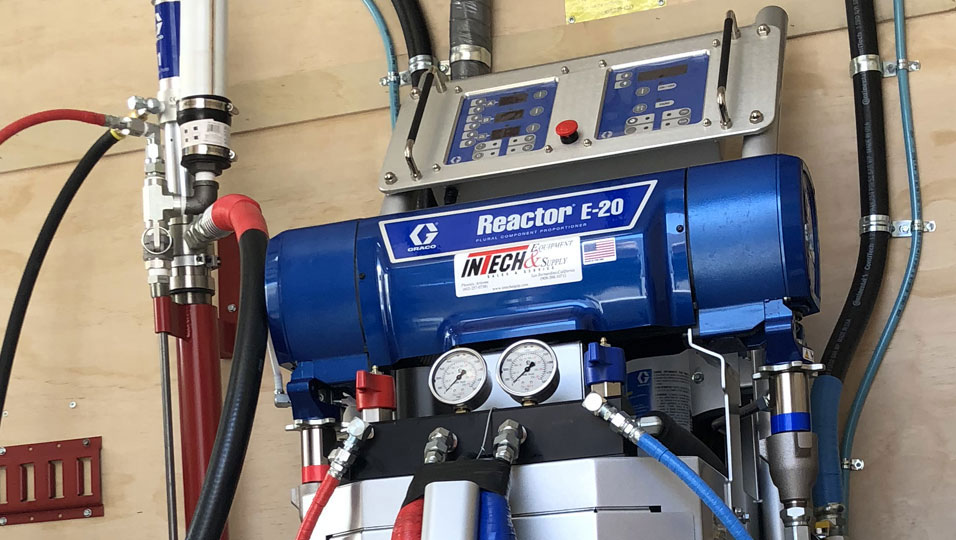
Traditionally, local contractors handle SPF insulation jobs. However, there are people who prefer do-it-yourself spray foam insulation kits. If you are considering doing it yourself, think twice before you buy a DIY kit.
There are significant benefits to insulating your home with SPF insulation:
- helps reduce energy costs
- reduces outside noise
- increases roof durability
Spray Foam Should Only Be Installed by Professional Contractors
Spray foam insulation is a preferred method of insulating your home, but for safety reasons, it should only be applied by professionally trained contractors.
One reason for using a spray foam professional is that spray foam is made of flammable chemicals. For safety reasons, it is recommended you hire a professional contractor to complete your insulation job.
When you buy a DIY Spray Foam Equipment Kit, the packaging will clearly state ‘For Professional Use Only.’ Homeowners run the risk of installing a product that could perform very poorly in a fire.
Fire Is a Consideration When Spraying the Foam
“The actual vapor itself is flammable, so [the person applying it] cannot have any open flames or actual ignition sources anywhere around or near where you’re working,” said Stephen Archibald, the operations manager at MJM Energy, a building contractor.
He said people who spray the insulation themselves might not consider their furnace as a combustible source. It should be turned off while spraying.
Spray foam should also be kept in strictly safe storage conditions and used within specific spraying temperatures to ensure the product works.
Protective Gear Needed
Using spray foam also requires protective clothing and equipment like goggles and gloves.
Gases given off by the spray can be hazardous to a person’s health. Most installers have requirements that people do not occupy their home for at least 24 hours after the spraying has taken place.
Spray foam, in its chemical form, is poisonous. Homeowners should not touch, handle or spill the product.
Typically, installers are required to use all of the usual personal protective equipment on a construction site, as well as other specialized gear.
Contractors must wear face protection, preferably a full-face mask. They also need to wear breathing protection and special filters.
If in an enclosed space, installers should have forced air coming into their mask. They should also wear protective clothing and a treated chemical paper suit, so it resists the chemicals flowing onto it.
In short, contractors should be covered head-to-toe, which includes wearing gloves, goggles and a breathing apparatus.
Too Much Foam Can Be Dangerous
With a closed cell, two-pound spray foam insulation, it is recommended that only two inches of spray foam are applied at a time because when the chemicals are combined to create the foam, they generate heat, which poses a fire risk.
Spray foam insulation has an odor during installation, but that usually dissipates. The gases are
Ask for Credentials
When hiring a spray foam installer, it is essential to ask for and check the credentials and licensing of both the company and the employees doing the job.
For those who are considering spray foam installation, like spraying openings around pipes, wall or roof tile installation, it is a must to hire a certified and licensed installer to ensure everyone’s safety.
For more professional spray foam recommendations see Intech Equipment & Supply. Check out their online Spray Foam Equipment Store.

